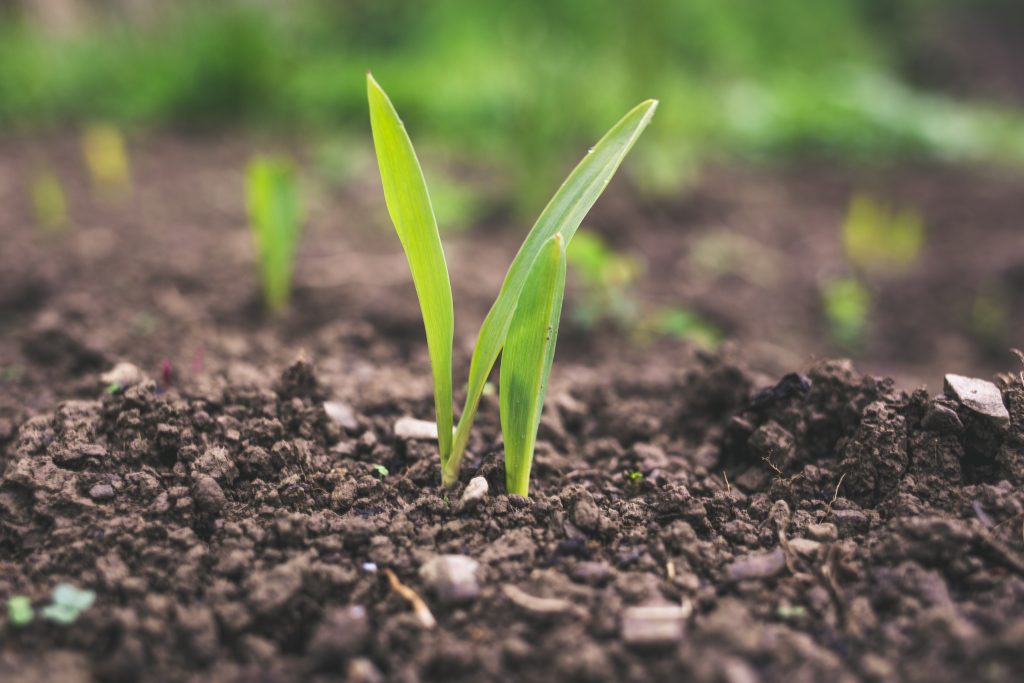Nigeria’s got a good number of it’s citizens in the agricultural sector, especially in the rural communities. In the United States of America only about 2% of the country’s population are into agriculture, but American farms contribute about $140 billion to the nation’s GDP. Agriculture in Nigeria can improve greatly if the problems are well tackled. Below are some of the major problems of agriculture in Nigeria and their possible solutions.
Problems of agriculture in Nigeria
- Poor management
- Inadequate finance
- Lack of mechanization/modernization
- Lack of information
- Poor research and record keeping
- Poor infrastructure
- Illiteracy
- Absence of good storage facilities
- Loss of land to natural disasters
- Poor land tenure system
- Low level of irrigation farming
- Low technology
- High production cost
- High post-harvest losses
- Insecurity
- Pest and diseases
1. Poor management
Management is the ability for a person to make decisions, organize resources, implement decisions and evaluate the effects of his decisions for the success of an enterprise.
The management should plan, organize, direct, staff and control the activities in the farm. Most Nigerian farms are run by individuals or families who have zero managerial skills. So when problems arise in the farm, they try to solve themselves or allow the problem thrive when unable to.
Solution
If you’re not a subsistence farmer your farm needs management. So get one or more educated personnel with managerial experience or someone who’s got good farm management records.

2. Inadequate finance
Nigerian farmers (80%) are small family farmers, this is so not because they like being small farmers but because of the lack of funds to expand to large scale farming.
One of the major problems facing agriculture in Nigeria is lack of funds and these funds are kind of difficult to come by as farmers are not being granted loans or better still do not know how to get loans.
This is definitely lead to struggling to make a living and also lead to bringing uninterested family members to take part in farming instead of hiring labor. The whole frustration will affect overall productivity.
Solution
Online farming has made it easy for farmers to get loans for their farms. Apart from that, lots of non-agricultural companies now offer loans for various businesses. So this should no longer be one of the major problems facing agriculture in Nigeria.
3. Lack of mechanization
We are in the 21st century and farmers in Nigeria still rely on crude implements for farming and storage. They just like to suffer, wouldn’t blame no one because most farmers can’t afford modernized/mechanized equipment for farming and the cost of renting too is quit expensive, so they just stick with them hoes and cutlasses and wheelbarrows and watering cans that affect productivity to a large extent.
Solution
Here, the government’s got a huge role to play. Mechanized implements like tractors, ploughs, irrigation tools, etc. should be provided by the government or the ministry of agriculture to help rural farmers.
Cooling supplies for perishable farm products should be installed in trucks or houses to keep perishable farm products fresh. For poultry, incubators should be provided as most farmers make eggs and not birds.
4. Lack of information
Lack of information is one of the major problems facing agriculture in Nigeria. Most of our farmers just don’t know. They don’t know about loans, they don’t know how to get mechanized implements, they don’t know how to select the right seed variety, they don’t know the right spacing for planting, they don’t know the best time for planting, they just don’t know.
Solution
Adequate trainings and seminars should be held for farmers on different sectors to create awareness. New technologies introduced and if possible, farmers should be monitored to ensure the knowledge gained is applied on their farms.
5. Poor research and record keeping
Do Nigerian farmers know what record keeping is? I really don’t think so. There is no accurate tracking of farm activities.
Agricultural development in Nigeria cannot be measured if there is disorganization of the farm records for research purposes. This makes it really hard to get to the root of agricultural or farming problems to proffer solutions.
Solutions
Proper documentation and record keeping of farming information should be adopted.
6. Poor infrastructure
Inadequate and unreliable infrastructure service is one of the major problems facing agriculture in Nigeria. We found that better infrastructure translates into better food production.
Poor infrastructure discourages potential local and foreign investors and leads to waste of farm products.
Solutions
Basic amenities such as good roads, water, electricity and the likes should be provided to farming areas. This will definitely increase productivity and farm/agricultural output.
7. Illiteracy
Most of our farmers can neither read nor write. The local farmers are even as uninformed as they lack modern agricultural education. This hinders growth and won’t help productivity.
Solution
Farmers should be taught and constantly updated on agricultural topics and innovations. In this case extension agents should also help illiterate farmers with every information needed.
8. Absence of good storage facilities
Findings have revealed that people are interested in partial farming but not in full-time farming just to avoid wastages, investment on agriculture is minimal because of lack of adequate storage facilities.
SBM Intel, a geopolitical research and strategic communications consulting firm has revealed that 47% of farmers have zero access to any kind of storage facilities during harvest, which could rise up to as high as 60% for tubers, fruits and vegetables.
Absence of storage facilities forces Nigerian farmers to sell their harvest at low prices to middlemen who own warehouses.
Solution
The federal government should finance and make available sizeable storages where most of these farm products can be stored.
9. Loss of land to natural disasters
Natural disasters, such as floods and wildfires can devastate agricultural lands, destroying crops, infrastructure, and soil fertility. When agricultural land is lost or damaged, it leads to a decrease in crop yields, affecting food production and the livelihoods of farmers.
Loss of arable land can result in food scarcity and increased prices, impacting local and global food supply chains.
Solution
Promote sustainable and resilient farming practices, such as crop rotation, diversification, and the use of cover crops, to minimize the impact of land loss. Then again farmers should be encouraged to invest in crop insurance to reduce financial risks associated with land loss from natural disasters.
10. Poor land tenure system
In a poor land tenure system, there is often a lack of clear and secure land rights for farmers, leading to disputes and conflicts over land ownership. When land tenure is unclear or insecure, farmers may not have the incentive to invest in long-term land improvements or sustainable farming practices.
Farmers may hesitate to make long-term investments in land improvements, such as irrigation or soil conservation, due to the uncertainty of land tenure.
Solutions
Implement and enforce clear and secure land rights for farmers through land registration and documentation processes. This provides farmers with a sense of ownership and security over their land.
11. High post-harvest losses
This is one of the problems facing agriculture in Nigeria. Agricultural products are easily perishable while production remains seasonal, as some losses occur during harvests and others occur while the commodities are in transit, during offloading (due to poor handling), and in varying degrees in the entire process from farm to fork.
Solution
Post harvest losses usually occur due to lack of proper storage facilities, bad roads, harvesting being done by personnel with minimal knowledge on how to handle each farm produce.
If the roads are fixed and there are good storage facilities with knowledgeable personnel, this problem can be easily sorted out.
12. Pest and diseases
Pests and diseases can cause extensive damage to crops, leading to a reduction in agricultural productivity and economic losses for farmers. Controlling and managing pests and diseases often require the use of pesticides and other interventions, which can increase production costs for farmers.
Severe infestations or disease outbreaks can result in complete crop failures, impacting food security and livelihoods.
Solution
Farmers should implement Integrated Pest Management (IPM) strategies that combine biological, chemical, and cultural control methods to minimize pest and disease damage while reducing the use of harmful chemicals.
Farmers can also practice crop rotation and diversify plantings to disrupt pest and disease life cycles and reduce their impact on specific crops.
READ ALSO: How to start a snail farming business in Nigeria
The bottom line
The above listed are the major problems of agriculture in Nigeria. Addressing these challenges is essential to unlock the full potential of Nigeria’s agriculture sector, enhance food security, and promote economic growth.
Collaborative efforts from the government, private sector, and international organizations are crucial to implement sustainable solutions and ensure a prosperous and resilient agricultural future for Nigeria.

Hmmm💔💔💔💔💔 farmers sha
I also want to be a farmer but I want to be educated
What’s the hindrance?
Hello,
If you want to go into farm business, there are so many company platform this days
like http://www.virtatrade.com that can enable you to raise the funds you need to start up your
farm business without you seeking for a loan
This company platform is where so many business dealers from different part of the
world raise funds to backup there various business financially
I use this company platform to backup my cocoa beans export business each time am
running loss financially
You can visit and register with the company website here http://www.virtatrade.com to raise
the funds you need to start up your farm business now